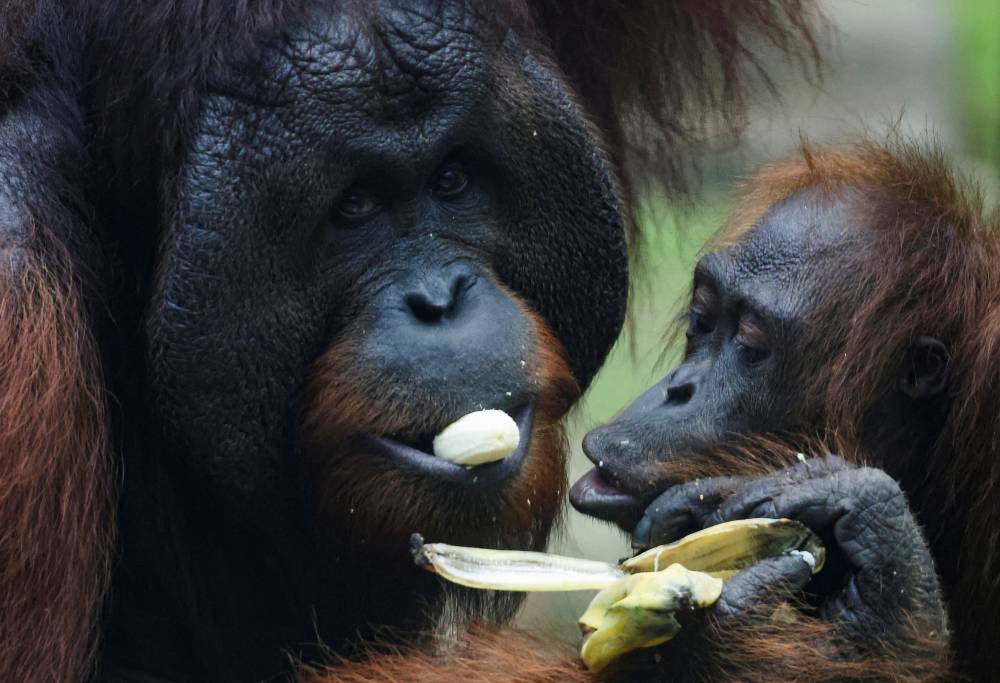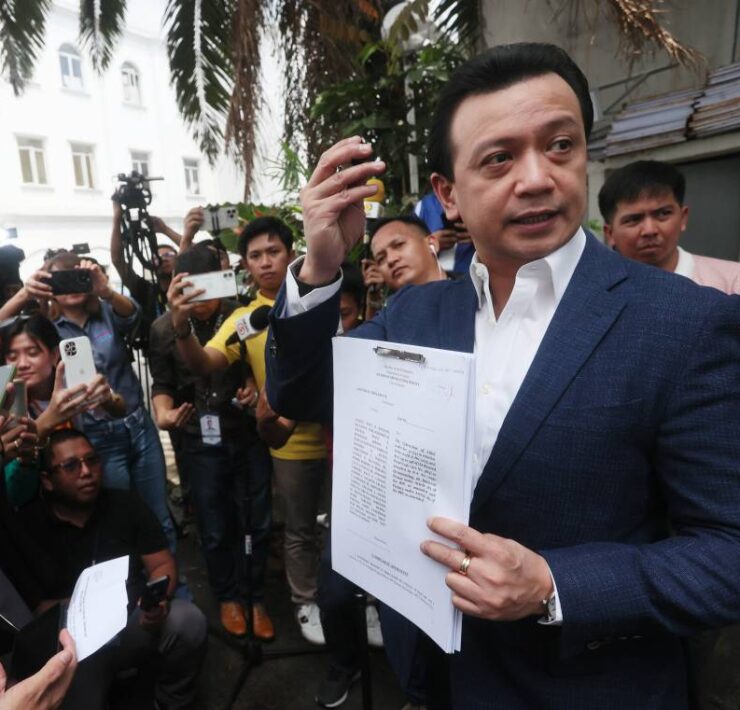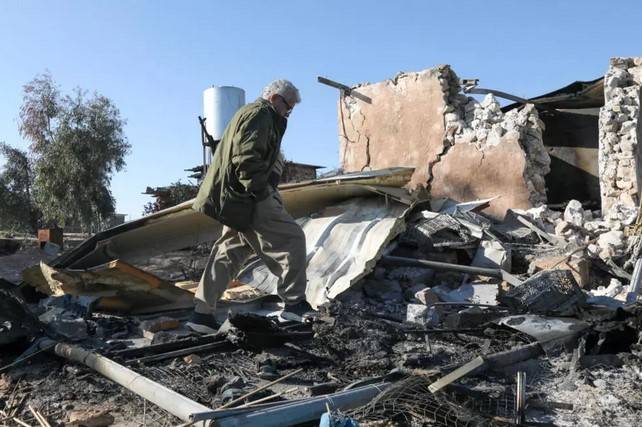Malaysia tweaks ‘orangutan diplomacy’

SANDAKAN, MALAYSIA—Companies that import palm oil from Malaysia will be able to adopt orangutans but the primates will not be able to leave the country, the commodities minister said on Sunday, in a revised version of a conservation scheme announced earlier this year.
Plantations and Commodities Minister Johari Abdul Ghani also pledged to halt deforestation in Malaysia, saying 54 percent of the country was forested and that the level would not fall below 50 percent.
“All conservation activities will be carried out in forest areas or forest patches in oil palm plantations with high conservation value,” Johari said, according to Bernama.
“These… areas provide space for orangutans to move freely, find food, and reproduce without interference from humans or other activities.”
In May, the minister put forward a plan to send orangutans abroad as trading gifts in an effort to allay concerns about the impact on the animals’ habitat of palm oil production, which tends to involve clearing forest land.
The plan raised objections from conservation groups fearful for the welfare of the orangutans that are critically endangered.
Natural habitat
“The animals cannot leave their natural habitats. We have to keep them here. And then we will meet the countries or the buyers of our palm oil if they want to work together to ensure that these forests can be looked after and preserved forever,” Johari told a news conference in Sabah, northern Borneo.
Conservation group WWF says the population of the orangutan, whose name means “man of the forest” in Malay, is less than 105,000 on the island of Borneo.
Johari said funds raised from companies who adopt orangutans would be distributed to nongovernmental organizations and the Sabah government to monitor the forested areas where the primates live, and seek to monitor the animals’ safety and condition.
He did not give details on how much adoption would cost.
Marc Ancrenaz, scientific director of nongovernment organization Hutan, said he hoped the plan could fund habitat conservation work, such as building corridors between fragmented forests that are too small to sustain viable wildlife populations.
Deforestation
The “orangutan diplomacy” scheme was first made public in May after the European Union last year approved a law banning imports on commodities linked to deforestation.
Malaysia, the world’s second-largest producer of palm oil, described the law as discriminatory.
China has long used panda diplomacy as a form of soft power.
It loans pandas to foreign zoos under strict conditions, including returning any offspring to join China’s breeding program.
Palm oil is used in foods such as cakes, chocolate and margarine, as well as cosmetics, soap and shampoo.
Malaysia and Indonesia together produce the majority of global output.
Reuters, the news and media division of Thomson Reuters, is the world’s largest multimedia news provider, reaching billions of people worldwide every day. Reuters provides business, financial, national and international news to professionals via desktop terminals, the world's media organizations, industry events and directly to consumers.





















